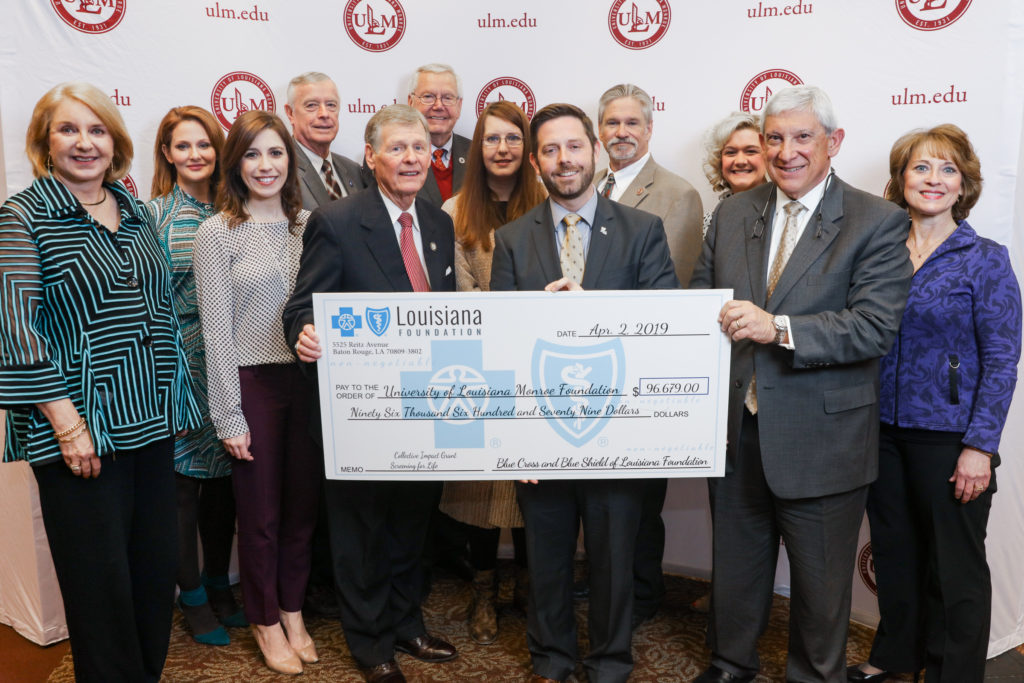Last week, we had the honor of presenting a grant award to the ULM Foundation to fund their partnership with the College of Health Sciences, the College of Pharmacy and staff from Ochsner LSUHSC-Monroe. Together, these teams are working on “Screening for Life,” a project that will provide health screenings, education and care navigation via community health workers.
All of this activity takes place in the delta region, where need is extremely high particularly among families and, in particular, children. We know that this navigation and preventive medicines will save lives and improve quality of life for those it reaches, and we are proud to be a part of this initiative.

Preventive medicine and wellness are essential to improving the social determinants of health. For example, we know kids need to be healthy in order to focus and learn to their fullest potential in school; so, families have to have enough food, access to care and good quality of life.
Within our foundation’s grantmaking work, we’re also seeing the kind of community-driven care navigation provided by ULM and others as increasingly important to generating more positive outcomes for those most in need of care.
Programs like 232-HELP in the Acadiana region and others are focusing on people experiencing an acute health crisis and what they need in order to heal, beyond medical care. Often, these patients present in the emergency room and may not have access to stable housing, food or clinical care once they leave.
People need a safe place to live and enough to eat in order to heal. Patients with mental health problems need care and stability to get consistent treatment for chronic physical health conditions. Hospitals like University Medical Center in New Orleans are screening for social determinants of health as part of their intake process, and operating a therapeutic health pantry to make sure patients and their families have food security.
Preliminary reports suggest that these care navigation efforts are incredibly effective at getting people well and connecting them with more effective care outside of the emergency room. Quality of life and overall health improves for patients who are connected with social services, and these projects may generate savings for hospitals.
Our next grant deadlines are June 1 and September 1 and the Foundation is very interested in coalitions of community groups who work together to solve complex problems like care navigation for those most in need. It can often take months to build these project teams, but if your region of the state is considering coalitions to address care navigation or other social determinants of health, or gaps in the healthcare workforce, let’s start a conversation.
– Michael Tipton
BCBSLA Foundation President and Head of Community Relations
michael.tipton@bcbsla.com
